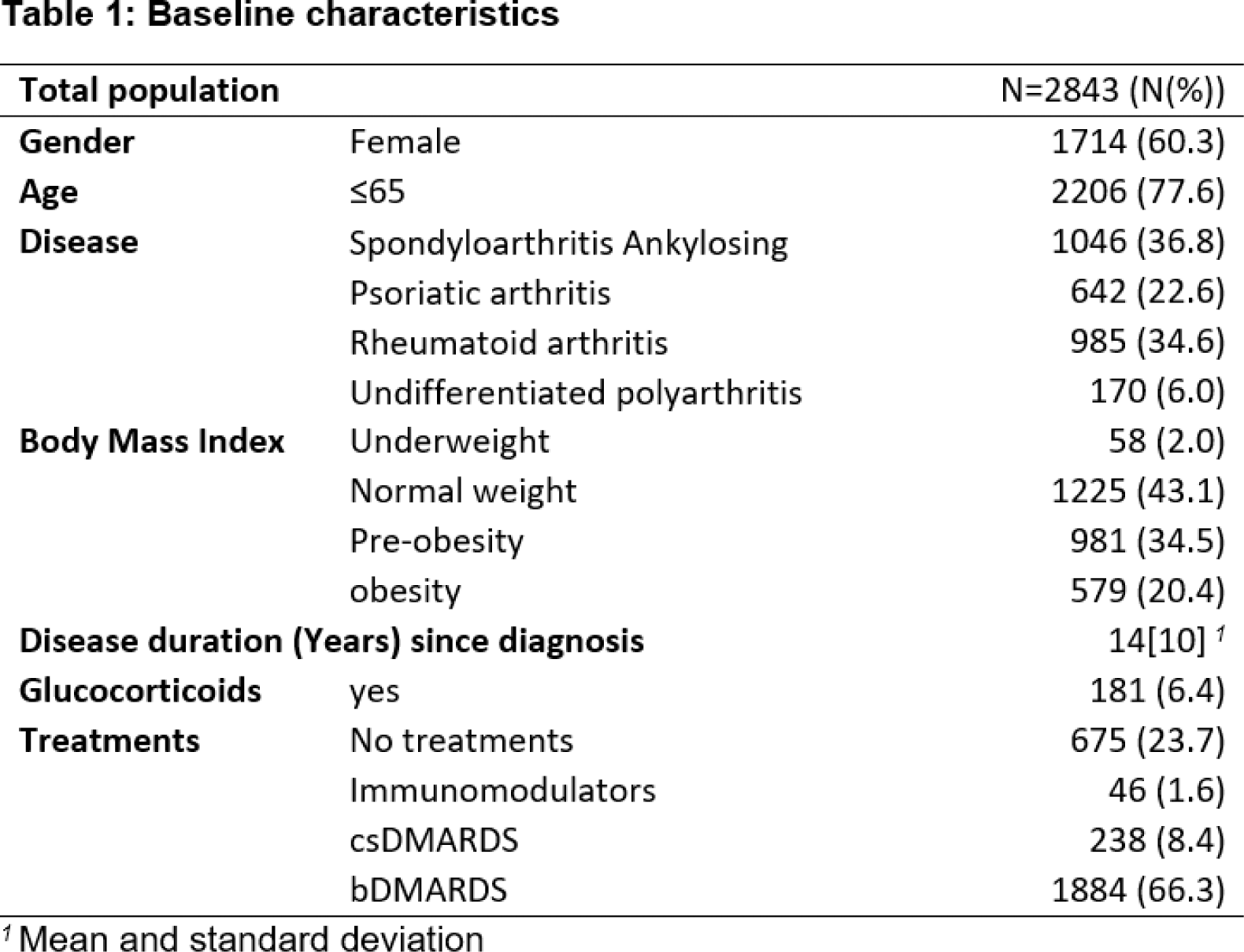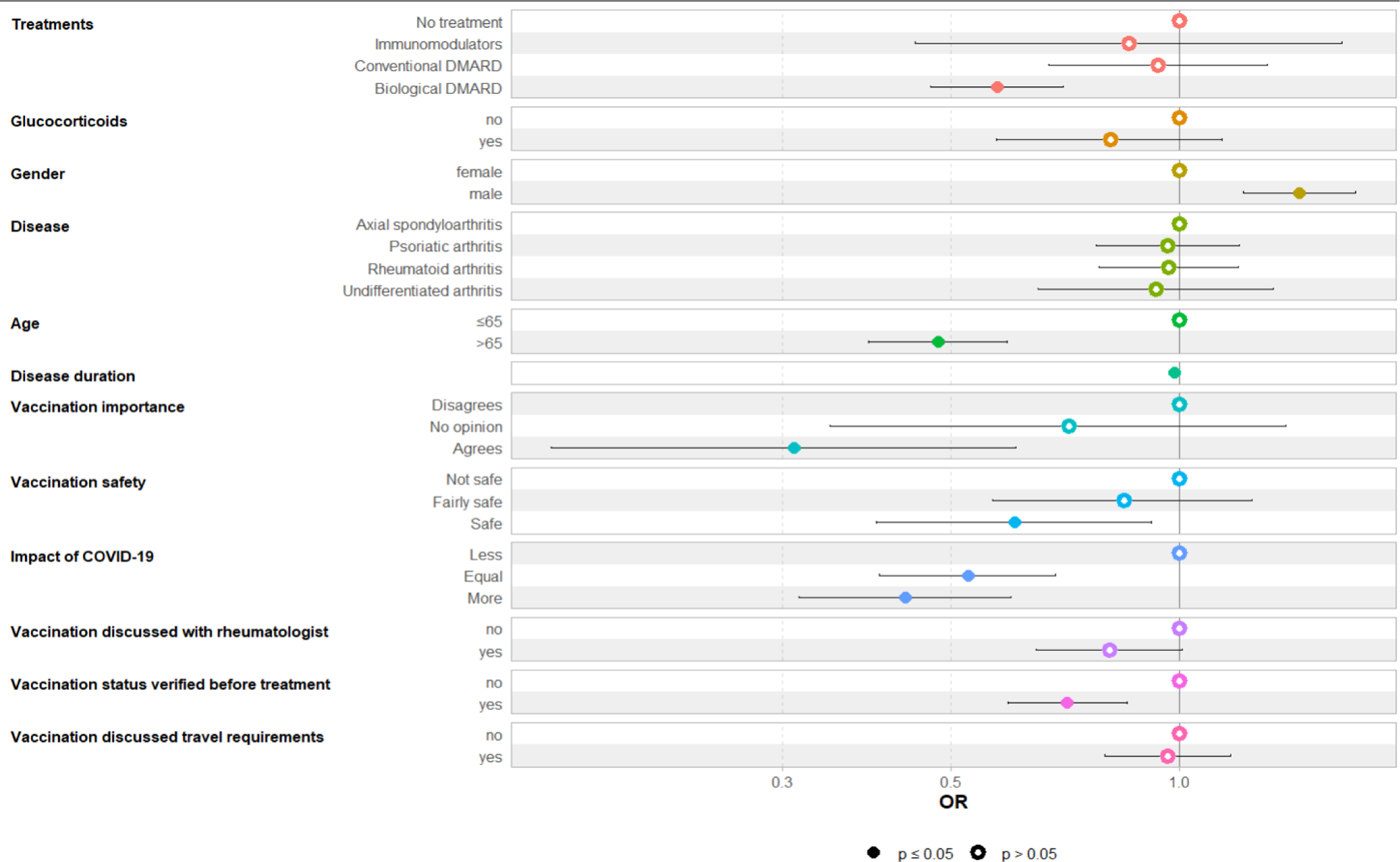

Background: In patients with inflammatory rheumatic diseases, the heightened infection risks due to both the diseases themselves and the immunosuppressive nature of their treatments underscores the critical need for effective vaccination strategies in this vulnerable population [1,2].
Objectives: To explore and evaluate the belief, attitude, and behaviour of patients with rheumatic inflammatory diseases around vaccination, utilizing data from a national register in Switzerland.
Methods: In this cross-sectional survey of patients with rheumatic inflammatory diseases from the Swiss Clinical Quality Management (SCQM), a specific questionnaire to assess belief, attitude and behaviour around vaccination, including vaccination history was developed. The main outcome was vaccination uptake evaluated through three parameters: 1) updated vaccination status 2) influenza vaccination coverage and 3) pneumococcal vaccination coverage. The main exposures evaluated were 1) patients’ perceived importance of vaccination and 2) their beliefs regarding vaccination safety. Patients registered in SCQM and who responded to these two specific questions were included in the analyses. Descriptive analyses were the mean and standard deviation for continuous variables, and frequency for categorical variables. Missing data were imputed by multiple imputation and the associations were estimated using logistic regression. As patient’s perceived importance of vaccination and their beliefs about its safety were too correlated, only the perceived importance of vaccination was kept in the models.
Results: Of 2843 patients analysed, 60% were women, and 77% <65 years old (Table 1). While 52% believed both in the importance and safety of vaccine, 2.4% believed both that vaccination is not safe and that is not important to follow the recommendations. Most patients (64%) didn’t change their vaccination beliefs after the COVID-19 pandemic. Among respondents, 47.4% had checked their vaccination status in the last 24 months, 51.2% had coverage against influenza, and 33.5% against pneumococcal pneumonia. Vaccination uptake was positively associated with age <65, increased willingness to get vaccinated since the COVID-19 pandemic, and verification of vaccination status by the rheumatologist before initiating the treatment. Discussions with the rheumatologist and pre-travel considerations were significantly associated with pneumococcal coverage or updated vaccination status. Perceived importance was significantly associated with influenza coverage but not pneumococcal coverage or overall updated vaccination status.
Conclusion: Rates of vaccination were relatively low in this vulnerable population, underscoring the need for targeted strategies. The results reveal significant factors associated with vaccination among patients with rheumatic diseases, such as age, an increased willingness to get vaccinated since the COVID-19 pandemic, and prior verification of vaccination status by the rheumatologist. Additionally, discussions with the rheumatologist or considering vaccination before travel also emerge as influential factors in certain analyses. These findings provide promising insights for enhancing awareness and promoting vaccination in this vulnerable population, thereby reinforcing protection against infections. Strategies specifically targeting these factors can play a pivotal role in improving vaccination rates among patients with inflammatory rheumatic diseases.
REFERENCES: [1] Furer V et al. 2019 update of EULAR recommendations for vaccination in adult patients with autoimmune inflammatory rheumatic diseases. ARD. 2020;79(1):39-52.
[2] Neusser et al. Facilitators and barriers of vaccine uptake in patients with autoimune inflammatory rheumatic disease: a scoping review. RMD Open. 2022;8(2):e002562.

Flu coverage and factors associated in multivariate analysis.
OR = Odds Ratio.
Being to the right of the vertical line (OR=1) suggests an increased risk of not being vaccinated, while being on the left indicated a decreased risk of the same

Acknowledgements: NIL.
Disclosure of Interests: None declared.